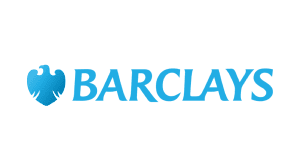How to choose a German bank account
When choosing a bank account in Germany, there are several factors that may influence your decision:
cost
Most German banks offer simple current accounts free of charge, but with a limited range of services. Online and mobile banking charge lower fees for money transfers, but also limit the number of transactions per month.
English service
Many international banks and mobile banks, as well as some major German banks, offer English versions of their websites and mobile apps. However, Sparkassen and Volksbanken have very limited services in English.
Types of banking products and services
Services you need to consider include free international withdrawals, affordable international money transfers, and other services you may need, such as credit cards, overdrafts, and free ATM withdrawals.
Availability
Online or mobile banking accounts can be accessed from anywhere, making it easy to do your banking anytime. Most central banks also offer fast online account access.
Non-resident accounts
If you need to open an account before moving to Germany, consider opening an account through an online bank or an international bank. In most cases, national banks in Germany only provide services to resident customers. You can compare the conditions for opening and servicing an account at multiple German banks through the free service platform DeutschesKonto.org, which is available in English.
How to open a bank account in Germany as a foreigner
Usually, there are no special requirements for EU citizens to open a bank account in Germany. However, citizens of non-EU countries must confirm their registration and/or valid residence permit in Germany. Sometimes a work permit is also required. Account opening may be refused without a good financial record.
It is recommended that you visit a bank branch in person and bring with you all the documents that may be required, which typically include: passport or photo ID and valid visa or residence permit; proof of address; proof of income or employment (depending on the type of account being opened); confirmation of student status (if opening a student account); credit rating report (may be required by some banks).
Other applications also require identity verification through the post or an online identity verification process. Typically, account opening takes 2 to 3 business days.
How to open a German bank account abroad
Some online banks offer the ability to open a bank account from abroad, but this is usually only available to EU citizens. Some require you to submit personal documents electronically; others, such as bunq, can open an account in minutes via your phone.
Before relocating, foreigners can open a German bank account if they have obtained a valid German visa and can provide a German address. However, bank account opening in certain countries may not be allowed. The procedure for opening an electronic or mobile banking account is as follows.
How to open an electronic or mobile banking account in Germany
Most German banks also allow you to open an electronic account online, thus avoiding a physical visit to the bank. If you currently have a bank account, you can usually convert it to an electronic account by downloading your preferred bank's app on your mobile phone. To open an electronic account, you will need an email address, a mobile phone number and a valid identification document.
How to open a business bank account in Germany
Depending on the business model, there are different ways to open a German commercial bank account:
Sole business owners and freelancers typically need the same documents as when opening a private account.
A partnership must provide detailed information about the partners.
A closed stock company also needs to provide articles of association, business registration information, registration certificate, shareholder list and business license (if any).
The business accounts of a closed stock company must be opened personally by the CEO.
How to open a bank account for your child in Germany
Most German banks have prepared balance and savings accounts for children and teenagers. Of course, the conditions for opening and maintaining a children's account may differ from bank to bank, but most banks offer the opportunity to open an account for children under the age of 18 living in Germany.
The documents that are usually required are as follows:
Passports or ID cards of the child and his/her legal representative;
Some banks offer the service of opening an account for a child only if the legal representative already has an account with the bank.
What to do if your bank account application is rejected in Germany
German banks may refuse to open an account if the applicant fails to provide registration or residence permit in Germany, or does not have a confirmed credit standing. If any inconvenience is caused by the bank itself, a complaint can be submitted to the German Financial Complaints Commissioner. EU/EFTA citizens can also submit a complaint to the EU Financial Dispute Resolution Organisation FIN-NET.
Banking services in Germany
Generally speaking, banks in Germany offer services similar to those of the larger banks in the US, UK and many European countries. In addition to the standard services – account opening, debit/credit card processing, money transfers and loan facilities, many German banks can also offer:
International Money Transfers from Germany
There are several alternatives to banks for international money transfers that may be cheaper and more convenient, such as:
CurrencyFair
Moneycorp
Remitely
Wise
WorldRemit
You can also use the online comparator Monito to save fees, lock in better exchange rates, and find the most attractive international money transfer options.
Bank account management in Germany
Most of the above banks offer a full range of account options:
Personal Services
Although the number of bank branches in Germany has decreased in recent years, there were approximately 13 physical branches per 100,000 people as of 2016. Banks maintain customer service teams and banking specialists.
Online Banking
This channel provides 24/7 access to your accounts and banking services. Most major German banks offer this service option, including: Sparkassen and Volksbanken
Mobile Banking
Mobile banking apps enable users to conduct banking activities and pay bills using their mobile devices; sometimes they also offer additional services, such as budgeting tools.
Changing banks or closing accounts in Germany
Changing banks or closing bank accounts in Germany is relatively simple if the customer has no unpaid debts. Proper procedures should be followed to avoid additional fees and penalties.
If you want to change banks, it is recommended to first open an account with the selected bank. Usually, you will need to complete and sign an account closure application form. First, you must ensure that:
There may be mandatory conditions requiring the account to be in operation for a minimum period. Failure to meet this condition will result in a penalty.
You can expect to receive confirmation from the bank via email or letter that the account has been closed. It is recommended to retain this notification for future correspondence.
If you have set up direct debits or recurring payments, you will need to cancel these now. You will also need to inform your employer and anyone else who has paid you through the account that it is no longer available.






